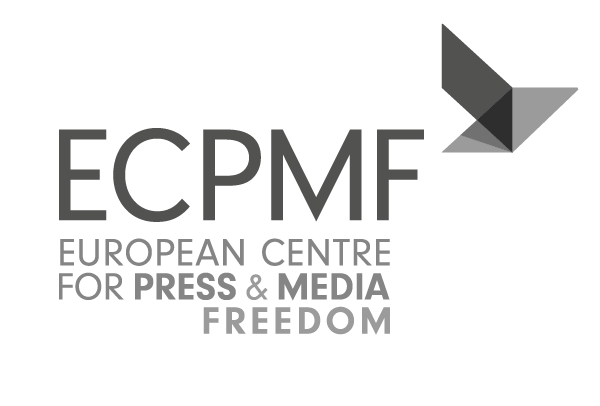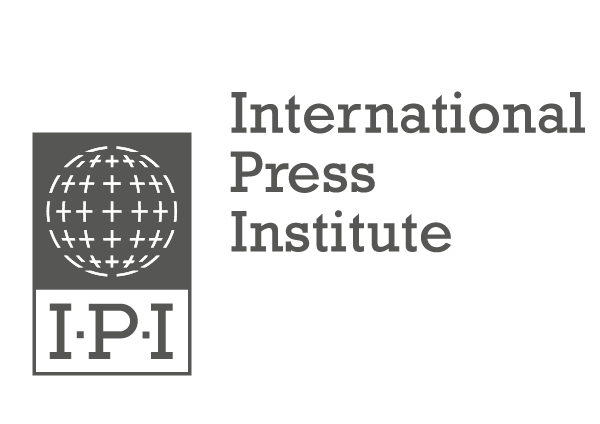
Image of sexist online harassment by IT4Change CC4.0
Journalists Tanja Milevska, Anastasia Tikhomirova and Marianna Spring work in different countries for different media but have one thing in common: all have become targets for misogynist online harassment.
For Tanja Milevska, nasty comments are nothing new. A freelance journalist, she works for the MIA news agency in Brussels where she covers political themes. One of them is the public responses to the new name and status of her native North Macedonia. When she wrote that Hungary’s Prime Minister Viktor Orbán had used the old name (Macedonia), trolls began to threaten her in social media posts.
The European Commission issued a statement condemning the threats: “A free press is the cornerstone of democracy and in Europe’s DNA. Democracy cannot work without free and independent media and respect for freedom of expression is essential.”

Tanja Milevska. Photo: private
The harassment reached another crescendo six months later, after Milevska wrote about the predominantly masculine culture of video gaming. One troll even offered a bounty of 1,000 euros for anyone who could hack into her Twitter account. She has developed a strategy for coping with the continuing abuse: “I don’t read my Twitter feed these days. My partner looks at it first, to filter out the hate“

Anastasia Tikhomirova’s Instagram photo
In Germany, the Volksverpetzer blog which reports on right-wing extremism is a frequent target for online abuse. One of their regular contributors is 21-year-old Anastasia Tikhomirova. She also works for taz, a left-wing national daily newspaper. Tikhomirova noticed that online harassers frequently accused her colleagues of “spreading leftist propaganda” but that their posts about her did not refer to what she’d written – only to how she looks. At one point she was physically threatened, too, during an anti-lockdown protest in Leipzig. Police escorted her to safety after she tweeted for help.
“Harassment should not be normalised”
Online on YouTube, Instagram and on a Facebook page with more than 25,000 followers, the harassment continued. Anastasia asked the platforms to remove the posts but they refused, maintaining that their community standards had not been breached. In the comments section of a derogatory Facebook post about her, she asked for support and received over 100 supportive messages – all of which were deleted by the page administrators. Still, the trolls could not remove the more than 200 private messages expressing care and concern for her safety and wellbeing.
“My advice is: never do what your haters tell you to do. Don’t shut up. Don’t turn off social media. There are people who will stand with you in solidarity – even if they don’t know you. We shouldn’t stop talking about sexist hate speech,” says Tikhomirova.
Just as in the case of Volksverpetzer, debunking and denouncing fake news triggers rage from those who are spreading it. So for a special correspondent like BBC Disinformation Correspondent Marianna Spring, whose role is to fact-check and defend the truth, every working day has its hazards. She decided to hit back at the harassers by ranking their tweets, with the worst insults (claiming she was a child sex abuser) scoring highest in the “hate parade”. It’s a measure of Marianna’s strength and resilience that she can use her sense of humour in this way to ridicule her would-be tormentors. BBC colleagues and other supporters responded with positive messages of empathy.

Marianna Spring. Photo: Twitter
“I am subject to a unique type of abuse. I am frequently called “Satan’s whore”, “the Devil’s slut” and other misogynistic terms for exposing the disinformation ecosystem that has been linked to real-world harm.”
Marianna Spring believes the fact that she frequently appears in vision on the BBC’s many channels on TV, radio and online contributes to the situation. She notes that “clips that show my face often solicit the most sexist harassment”. She concurs with the usual advice, which is “not to feed the trolls”, and stresses that she tries never to fuel the conflict, but rather to close it down. It’s important for her that everyone knows this abuse is happening.
“I think relentless online abuse directed at reporters and journalists should not be normalised. It’s for that reason I choose to highlight it. I am far from alone in receiving abuse. My colleagues are subject to horrific racist, homophobic, and sexist abuse – other journalists around the world are persecuted just for doing their jobs.”
If you are also facing misogynist harassment and attacks, you can #ReportIt here. It’s quick and easy and always confidential.
Correction: the originally-published version of this post wrongly stated that Anastasia Tikhomirova is the only member of the Volksverpetzer team who identifies as a woman. This has been removed from this updated version.





